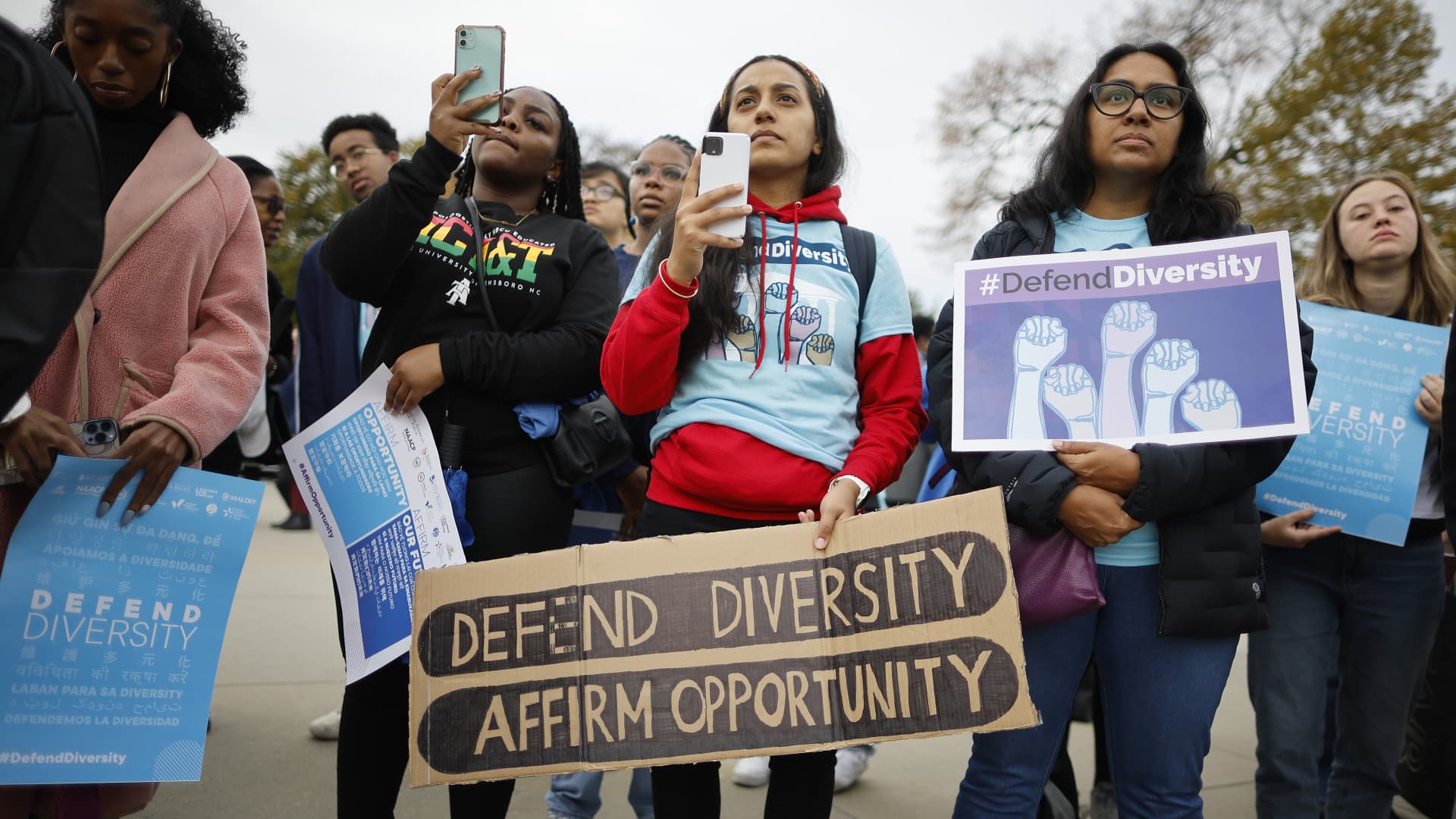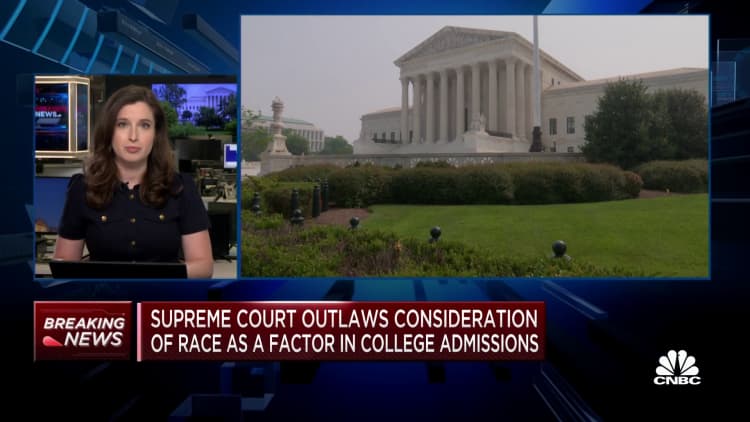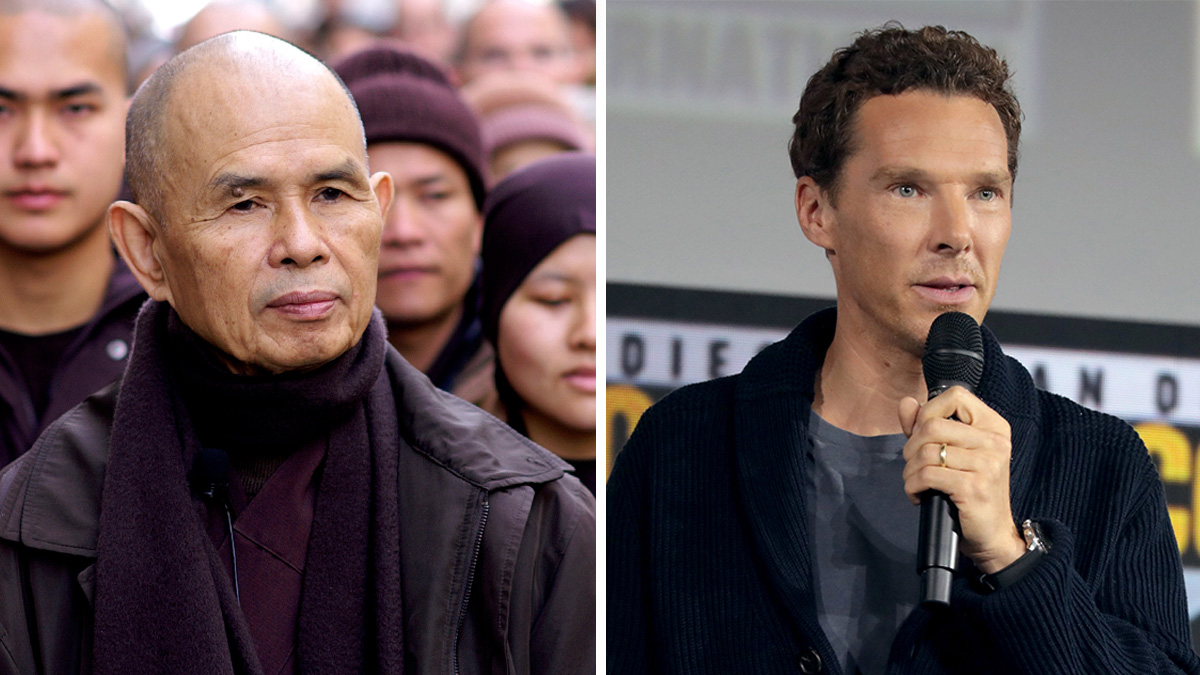Supreme Court rejects affirmative action at colleges as unconstitutional
The Supreme Court ruling on affirmative action at Harvard and the University of North Carolina is a blow to efforts to boost enrollment of racial minorities.


The Supreme Court on Thursday ruled that the affirmative action admission policies of Harvard and the University of North Carolina, which gave weight to a would-be student's race, are unconstitutional.
The ruling is a massive blow to decades-old efforts to boost enrollment of racial minorities at American universities.
The majority opinion by Chief Justice John Roberts, which all five of his fellow conservative justices joined in, said that both Harvard's and UNC's affirmative action programs "unavoidably employ race in a negative manner, involve racial stereotyping, and lack meaningful end points."
"We have never permitted admissions programs to work in that way, and we will not do so today," Roberts wrote.
The majority said that the universities' policies violated the equal protection clause of the Constitution's 14th Amendment.
Justice Ketanji Brown Jackson, a liberal and African-American, in a dissent called the ruling "truly a tragedy for us all."
Proponents for affirmative action in higher education rally in front of the U.S. Supreme Court before oral arguments in Students for Fair Admissions v. President and Fellows of Harvard College and Students for Fair Admissions v. University of North Carolina on October 31, 2022 in Washington, DC.
Chip Somodevilla | Getty Images
Her fellow liberal, Justice Sonia Sotomayor, in a sharp dissent, said, "Today, this Court stands in the way and rolls back decades of precedent and momentous progress."
Sotomayor, one of three liberals on the court, said that the majority "holds that race can no longer be used in a limited way in college admissions to achieve such critical benefits."
In doing so, she argued the Supreme Court "cements a superficial rule of colorblindness as a constitutional principle in an endemically segregated society where race has always mattered and continues to matter."
U.S. Supreme Court Justice Sonia Sotomayor
Getty Images
Thursday's ruling dealt with two separate, but related cases, one for Harvard, the other for UNC.
In the Harvard case, the vote on the decision was 6-2, with Jackson taking no part in considering the case. Jackson last year during her Senate confirmation hearings agreed to recuse herself in the case involving Harvard, whose Board of Overseers she served on until early 2022.
In the UNC case, the vote was 6-3, as Jackson participated and dissented with Sotomayor and Justice Elena Kagan, the court's third liberal.
This is breaking news. Please check back for updates.

 Tekef
Tekef 
































